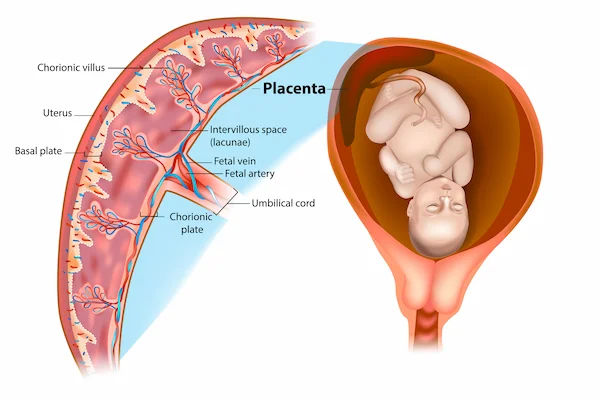Understanding the Menstrual Cycle and Phases
Learn about the menstrual cycle, its four phases, and what affects it. Understand symptoms, fertility tracking, and when to seek medical advice for a healthier cycle.

Written by Dr. Rohinipriyanka Pondugula
Reviewed by Dr. Md Yusuf Shareef MBBS
Last updated on 25th Aug, 2025

The menstrual cycle is a natural process that occurs in women of reproductive age. It plays a crucial role in fertility and overall health. Understanding your menstrual cycle can help you track ovulation, manage symptoms, and identify any irregularities that may need medical attention.
What Is the Menstrual Cycle?
The menstrual cycle is a monthly series of changes a woman’s body goes through in preparation for pregnancy. It involves hormonal fluctuations that affect the ovaries and uterus. On average, a menstrual cycle lasts 28 days, but it can range from 21 to 35 days and still be considered normal.
The Four Phases of the Menstrual Cycle
The menstrual cycle consists of four key phases:
1. Menstrual Phase (Days 1-5)
This phase begins on the first day of your period.
The uterus sheds its lining (endometrium), leading to menstrual bleeding.
Common symptoms: cramps, fatigue, bloating, and mood swings.
2. Follicular Phase (Days 1-13)
Overlaps with the menstrual phase and continues until ovulation.
The pituitary gland releases follicle-stimulating hormone (FSH), stimulating egg development in the ovaries.
The uterine lining thickens in preparation for a potential pregnancy.
3. Ovulation Phase (Day 14)
A mature egg is released from the ovary (around day 14 in a 28-day cycle).
This is the most fertile window—pregnancy is most likely if intercourse occurs in the days before or after ovulation.
Some women experience mild pelvic pain (mittelschmerz) or increased cervical mucus.
4. Luteal Phase (Days 15-28)
After ovulation, the ruptured follicle forms the corpus luteum, which produces progesterone.
Progesterone helps maintain the uterine lining for possible implantation.
If pregnancy doesn’t occur, hormone levels drop, leading to menstruation.
Common Menstrual Cycle Symptoms
Every woman experiences the menstrual cycle differently. Some common symptoms include:
Cramps (due to uterine contractions)
Bloating (hormonal water retention)
Mood swings (linked to estrogen and progesterone changes)
Breast tenderness
Fatigue
What Affects the Menstrual Cycle?
Several factors can influence your cycle:
Stress – High stress can delay or disrupt periods.
Diet & Exercise – Extreme weight loss or excessive exercise may cause irregular cycles.
Medical Conditions – PCOS, thyroid disorders, or endometriosis can affect menstruation.
Age – Cycles may be irregular during puberty and perimenopause.
Tips for a Healthier Menstrual Cycle
1. Maintain a Balanced Diet – Eat iron-rich foods (leafy greens, beans) and stay hydrated.
2. Exercise Regularly – Moderate activity can reduce cramps and improve mood.
3. Manage Stress – Yoga, meditation, or deep breathing can help regulate hormones.
4. Track Your Cycle – Use apps or a calendar to monitor symptoms and ovulation.
5. Consult a Doctor if Needed – Seek help for severe pain, heavy bleeding, or irregular cycles.
When to See a Doctor
If you experience:
Periods lasting longer than 7 days
Severe pain that disrupts daily life
Skipped periods for 3+ months
Extremely heavy bleeding (soaking a pad every hour)
It’s important to consult a gynecologist to rule out underlying conditions.
Need Help? Book a Consultation with Apollo 24|7
If you have concerns about your menstrual cycle, Apollo 24|7 offers expert gynecological consultations. You can schedule an appointment or lab tests easily from home.
Take charge of your menstrual health; understand your body and seek help when needed!




